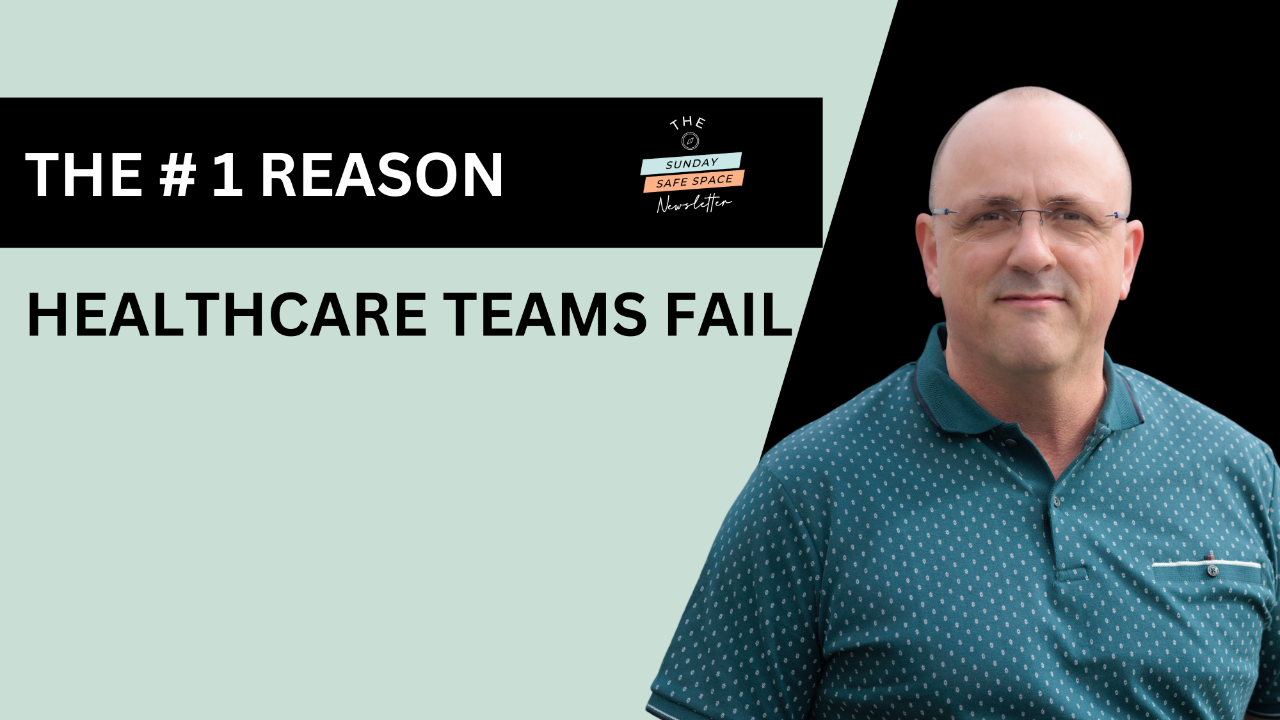
TSS #001: The #1 Reason Teams Fail
Jun 04, 2023Read time 3 minutes
"I don't have time for FLUFF!"
I smiled because of how many times I've heard a veteran healthcare leader say something similar. She went on to clarify the term "fluff."
"Fluff" is a well-meaning term intended to get people to focus on clinical practice rather than hurt feelings, emotions, or topics like psychological safety and emotional wellness.
Today, we will dive into a big topic - creating a safe, supportive work environment in healthcare. We're discussing reducing stress, improving communication, and strengthening your team.
Why should you care about this? Three Reasons:
1. When people suppress emotions, it drains their energy and increases distress, stress, and potential burnout
2. When people feel safe to express emotions, they tap into a reservoir of energy that they need to be their best at work and home
3. Engagement, retention, and recruitment all increase over the long haul, which deals with chronic staffing issues.
The bottom line is that when your team feels safe to express their feelings and concerns, everyone wins. Your staff work better together, patients are happier, and your team feels valued. Not to mention, it'll be easier to keep good people and attract new ones!
Unfortunately, this might sound simple, but it isn't easy.
The demands of healthcare can be tough and leave little room for focusing on emotional and psychological safety.
The Biggest Hurdle: Time and Resources Between hectic schedules and tight budgets, emotional well-being often takes a back seat.
Other Speed Bumps:
Awareness: Not everyone realizes how important emotional safety is.
Training: Even if you get it, you may not know how to make it happen.
Stress: We're in a high-stress field, folks, and emotional health often falls by the wayside.
Workplace culture: Sometimes, the culture just doesn't support open communication about feelings and stress.
Let's Get Started:
Step One: Recognize the importance of emotional safety Let's start by simply admitting that our feelings at work matter. Look at that ER team who started acknowledging their feelings. They went from frazzled to focused, with less turnover and happier patients.
Step Two: Get some training Investing in some training shows you're serious about emotional safety. That clinical team who got trained? Their stress levels dropped, and their patients noticed the difference.
Step Three: Make your culture open and supportive Let's make it okay to talk about stress and emotions at work. That medical unit who started talking? Their people started showing up more and enjoying their work.
So, there you have it! Simple steps to start making your healthcare space safer and more supportive.
Whenever you're ready, there are 2 ways I can help you:
1. If you're still looking for traction with your team, I'd recommend starting with an affordable course:
→ The Safe Space Support System Transform your leadership and your team culture into a high-performance safe space support system regardless of the challenges you're facing in complex situations. This comprehensive course will teach you the system I use to work with hundreds of teams to reduce absenteeism, stress, distress, unaddressed trauma, and disrespectful conduct and communication. Join the Leadership Transformation Here
2. Book me to facilitate a done-with-you service that is performed in person or virtually with you and your team. Book a Facilitation Here

